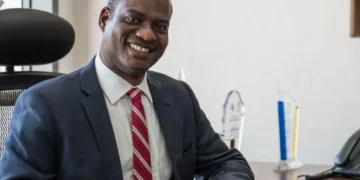A civil society organisation (CSO), Speak Up Stand Out Nigeria (SUSO) has said that racism is still the major factor affecting peace adding that it must be addressed even among the people of the same colour.
At a press conference to mark this year’s International Peace Day with the team, “End Racism. Build Peace,” the group said racism in places of work, worship centres, businesses were causing hatred even among people of the same colour.
The leader of the group, Rafiu Adeniran Lawal, said politicians should ensure they unite the country and build peace even in their choices and appointments.
“Investment in military arsenal does not guarantee peace. Let jobs be available, let there be equal opportunity, let the poor man get justice in the court.
“Nigeria is faced with the scourge of violent conflict, ranging from terrorism, kidnapping for ransom, banditry, violent secessionist agitation (Biafra, Oduduwa, Boko Haram, election violence and others).
“Virtually every conflict in Nigeria takes a religious and ethnic undertone. Not necessarily because they emerge from the fault lines of religion and ethnicity, but rather, because religion and ethnicity are seen as a refuge with which to project individual or group differences, without consequences.
“The Northwest, Northeast as well as the North Central regions, however, remain the worst hit of these crises. At least 1,126 people (according to the UN refugee agency), died from armed banditry attacks between January and June in the Northwest region alone, in 2020. This is even as about 1,606 people killed in 125 fatal incidents (Global Terrorism Index, 2020), an average of 13 people per incident, suggests that Nigeria is the third-most terrorised country in the world.
“In no too distant past, we saw and still see how Southern states as well as the North Central are awash with violent farmers-herders clashes, exacerbating the tensions between the South’s predominantly Christian population and the mostly Muslim herders. This results in about 2,000 farmers-herders crisis related deaths being recorded annually in Nigeria (International Crisis Group). On the 28th May, 2021, residents of Benue state (North Central region) woke up to no fewer than 36 deaths – mostly young people, in a clash that has been between predominantly Muslim herders and farmers who are predominantly Christians, taking the pattern of an ethno-religious crisis. Even yesterday, media reports had it that about 10 people were still killed by suspected herders in Benue State.
“For many young people, this is their bane: that they continue to be caught in the crossfire of violent conflicts, either as victims or perpetrators; that they are consciously and otherwise exposed to structures that portend high risk and tendency to replicate and support the same violent cultures they have known for the most part of their lives. These violent conflicts have sabotaged their livelihoods, further deepening their vulnerability, it has truncated their lives at its brightest, and has misdirected their prime energy and potentials,” the group said while calling on Nigerians to work for peace.
Also, an activist, Ene Mary Audu, who said the Nigerian youths should vote for a credible person in the 2023 election, added that there can’t be peace if youths are staying home for months.
“The candidates have different agenda. Look at the agenda, look at the manifesto. Does it favour what you want as a Nigerian? Go for the right candidate.
“In thinking of who to vote for, don’t consider religion, tribe or ethnicity. Vote for people who can bring a positive impact to the country, ” Ene added.




